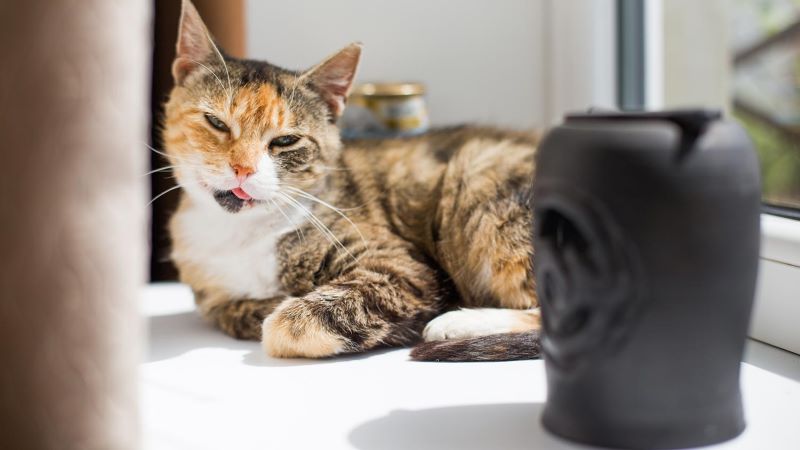The use of herbal and botanical medicine for healing and spirituality goes back thousands of years. Recently, many people are returning to essential oils as an alternative therapy to treat everything from dietary problems to anxiety. While humans may find essential oils to be a way to heal the body and mind, these same oils can be deadly to our pets.
What are Essential Oils?
Essential oils are the concentrated versions of natural oils in plants. These oils are distilled or cold pressed from the plants and then bottled in high concentrations. There are three main methods of applying essential oils: internally, topically or through diffusers. This practice is considered a method of holistic treatment that addresses healing a person through the body, mind and spirit.
Are Essential Oils Unsafe for Cats?
Yes! Unfortunately, cats and most essential oils are not a good mix. Cats absorb and filter nutrients much differently than humans. A cat has a deficiency of the enzyme, glucuronyl transferase, resulting in a reduced ability to metabolize certain toxins. These toxins then build up in your cat’s system and cause damage. Cats are sensitive to phenols and phenolic compounds which are found in many essential oils. The more concentrated the oil, the more dangerous!
Toxicity
While symptoms will vary based on several factors, there are some consistent signs your pet may be suffering from toxicity. Difficulty walking, pawing at the face, lethargy, drooling, and vomiting, are all signs your cat needs to go to the veterinarian right away.
Ingestion of concentrated essential oils by your cat can cause severe gastrointestinal upset, central nervous depression, and liver damage that may be fatal. Inhalation from a diffuser can lead to aspiration pneumonia as well as various other painful symptoms.
Common Toxic Essential Oils
Just as there are many plants that are toxic to cats, there are numerous harmful essential oils. A few of the more commonly used oils that are dangerous to use around your cat include:
- Citrus Oils
- Cinnamon
- Tea Tree
- Thyme
- Menthol Oils (Wintergreen, Peppermint, Birch, Eucalyptus)
- Clove
- Oregano
- Lavender
- Basil
- Nutmeg
- Fennel
Safe Practices
If you want to use essential oils in your daily life, there are some practices that can help to decrease the risk of harm to your cat. Research the company and brand of essential oil that you are using to determine if they use any fillers or solvents. Use higher dilutions when possible to reduce the harmful effects should your cat accidentally become exposed to the oil.
When using a diffuser, ensure that you are in an area with sufficient ventilation that your cat cannot access. Build-up of vapors can be toxic to pets, so don’t allow your cat in the area in which you were diffusing until vapors have been allowed to escape the space safely. Keep the diffuser and oils stored where your curious kitten can’t stumble across them.
If you apply oils topically, don’t let your cat lick the area where oil was recently applied. If you choose to bathe in the oils, clean your tub out thoroughly, so cats cannot access remnants of the oil on the surface of the tub. Cats are attracted to the unusual smell of the oils and could accidentally get it on their paws and fur.
The Bottom Line
Just because you have a cat doesn’t mean that you can’t enjoy the benefits of essential oils. Use safe practices when storing and applying oils to reduce the risk of accidental exposure to your feline friend. You may rely on essential oils to heal your body and mind, but your cat relies on you to keep them healthy!

